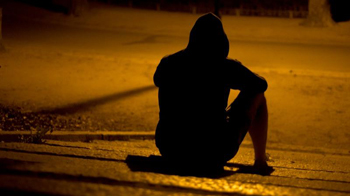London, Dec 3: Homelessness makes people vulnerable to mental and health problems, according to a study by British researchers that sheds light on the plight of society's most marginalised people.
 Research into the experiences of 64 people who are homeless or facing housing problems in Newham, London, found some living in slum-like temporary housing and others living in constant insecurity and flux while grappling with a housing system which they find complex and confusing.
Research into the experiences of 64 people who are homeless or facing housing problems in Newham, London, found some living in slum-like temporary housing and others living in constant insecurity and flux while grappling with a housing system which they find complex and confusing.
Of those interviewed, 22 per cent had a disability and 48 per cent had a health condition.
When asked about their health, nine per cent -- more than double the national average -- reported experiencing suicidal thoughts and nine per cent mentioned self-harming.
Researchers from the universities of Sheffield, Leeds and Birkbeck, London set out to understand their lives by working with 'Focus E15', a campaign group run by people who had themselves been threatened with homelessness and eviction in Newham.
Between September 2015 and April 2016, they interviewed people facing homelessness and had either approached Newham Council for support or were living in hostels in the borough.
Women were disproportionately represented, accounting for 67 per cent of those interviewed and more than half (59 per cent) had dependents, mainly children under 18.
It is because the housing system prioritises those working in the labour market which disadvantages women who take time away from work to have children, the report said.
The research was led by Dr Tom Gillespie of Sheffield and Dr Kate Hardy of Leeds University Business School.
Hardy said, "The sheer complexity of many respondents' situations and the various state institutions involved -- as well as the significant confusion, lack of information and poor mental health in some -- was distressing to hear. This is impacting some of the most vulnerable populations in society".
The research showed that 81 per cent of people interviewed had been homeless in the last five years. Seventy-three per cent had been evicted in the last five years.
Gillespie said, "The reasons for people becoming homeless were many and varied and often involved a combination of losing their job, cuts to social support, rent arrears, eviction and family breakdown".
The research also cast light on the controversial issue of people in temporary housing being offered longer-term housing if they move away from London.





Comments
Add new comment